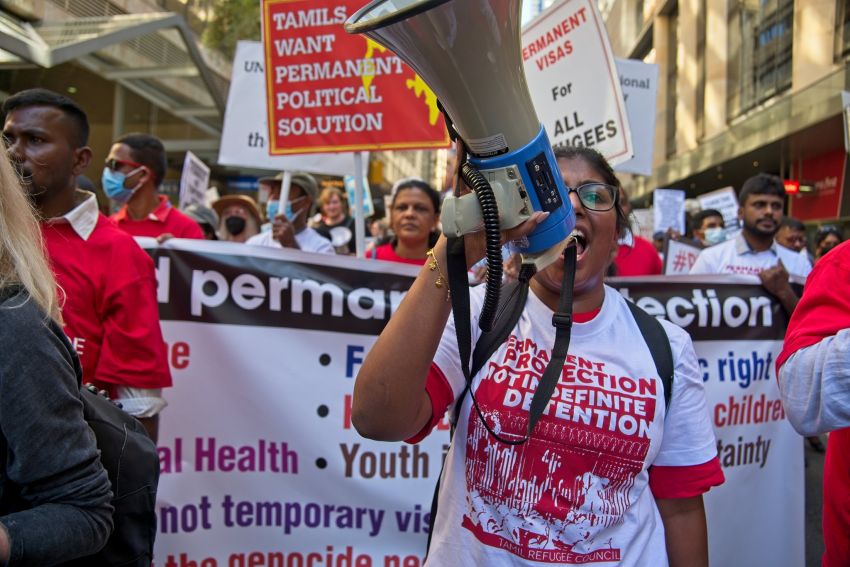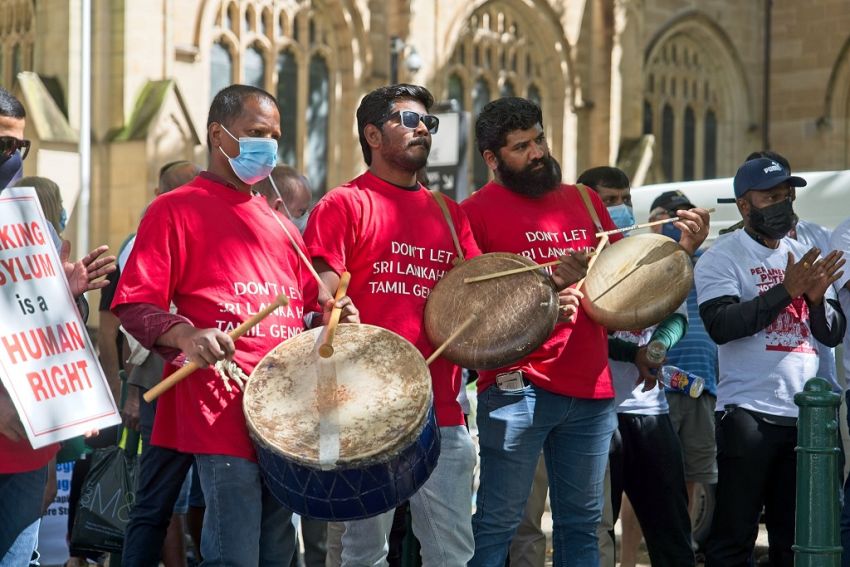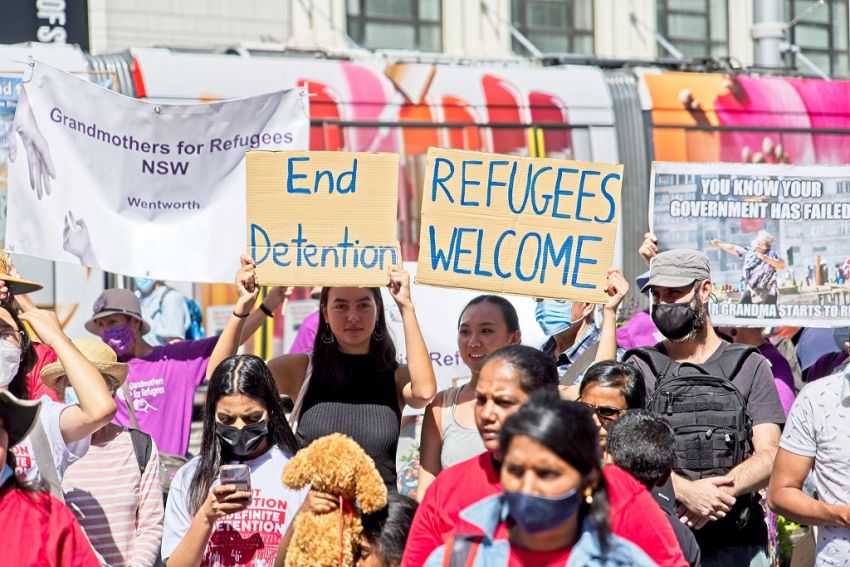
The Tamil Refugee Council organised a large contingent to mark Tamil Genocide Day ahead of a rally organised by the Refugee Action Coalition (RAC) on March 20 called on a United Nations-declared day for the elimination of racial discrimination.
Thirteen years ago, in May 2009, the beaches of Mullivaikkal in the Sri Lanka’s north were the site of one of the biggest massacres in the century: tens of thousands of Eelam Tamils were trapped and slaughtered by the Sri Lankan military in a “no fire zone”.
The Tamil Refugee Council said survivors were herded into internment camps for many months, some for years. “Many thousands were subject to grave abuses, torture, rape and thousands were disappeared.”
A key aspect Eelam Tamils want the world to know is that the killings were not just war crimes, they were part of a civil war, which is based on racism towards Eelam Tamils’ right to self-determination.

Tamil speakers called for the Australian government to end its cruel anti-refugee policy, and they contrasted the treatment Canberra was showing to Ukrainian refugees compared to Tamils. They called for it to accept all refugees fleeing wars.
Speakers addressing the RAC rally were: Thanush Selvarasa, a refugee released from Park Hotel in Melbourne; Maysoon Elnigoumi, Sudanese community activist; Michael Whaites from the New South Wales Nurses and Midwives Association, Asma Nayim Ullah, a Rohingya community youth leader and refugee on temporary visa; Ian Rintoul from RAC and Mustafa, an Afghan refugee on a temporary visa.
There are still 60 Medevac refugees in detention across the country, including those in the hotel, almost nine years after they were first sent to offshore detention. Another 200 are still in Papua New Guinea or Nauru.
Thirty thousand people are living in the community on temporary visas, including those recognised as refugees on Temporary Protection Visas. They all face the prospect of being forced to return home to danger and they are unable to bring family members to join them, even for those found to be refugees. The Murugappan family, too, are still unable to return to Biloela.
Rintoul said the federal government had turned its gaze from Afghanistan, leaving thousands of interpreters and family members of Afghan-Australians stranded. It allocated only 3000 refugee visas last year and said it will only accept a similar number annually for the next four years.
